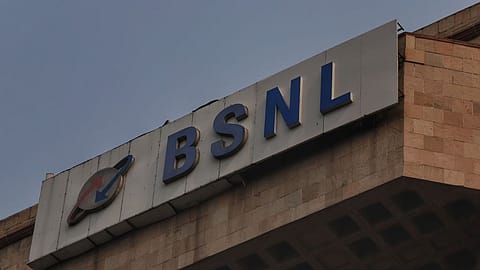Amid Jio-Vi-Airtel price hike, BSNL trends on Twitter for new mobile plans
Hashtags such as 'BoycottJio' and 'BSNL ki Ghar Wapsi' (Homecoming of BSNL) have been trending on social media platform X.

The recent concurrent price increases from mobile service giants Reliance Jio, Airtel, and Vodafone have prompted widespread support on the internet for BSNL after the state-owned provider introduced its budget monsoon plans. Hashtags such as 'BoycottJio' and 'BSNL ki Ghar Wapsi' (Homecoming of BSNL) have been trending on social media platform X, with over 45,000 posts recently.
The simultaneous price hikes by the three biggest telcos of the nation affect a massive user base, and led users to argue for porting their mobile SIMs to BSNL as an alternative because of the provider’s lower prices in comparison with all other providers.
The users have been posting on X about their willingness to give up the privileges of 5G connectivity to switch to BSNL. However, several responded saying the poor service and unavailability of BSNL towers in certain localities act as a major hindrance in making such a switch.
Mukesh Ambani’s Jio and Bharti Mittal’s Airtel have even removed ‘unlimited 5G’ from some of the more affordable plans. Mobile plan prices have surged by a percentage as high as 25% with users not being able to meet even their usual data requirements with the same existing plan now pegged at a more expensive rate.
The Indian telecom market is dependent on Reliance Jio, Airtel, and Vodafone Idea, which together provide services to around 1 billion of the 1.19 billion mobile subscribers in the country.
The new monsoon tariffs of various BSNL plans (as per the UP West circle) start from Rs 118, with a validity of 20 days going up to Rs 2,399 with a validity of 395 days. A comparison of BSNL’s STV_347 plan with Airtel’s daily data plan now at Rs 349 reveals that while both provide similar services with Airtel providing only 1.5GB per day against BSNL’s 2GB per day limit, the validity for BSNL plan is for 54 days and Airtel is just 28 days.
BSNL has seen a decline in its subscriber count in the last few years, however the service provider has continued its services in the oligopolistic market. Aside from its monsoon plans, BSNL has even rolled out a special Yatra SIM for ₹196 for various locations of the Amarnath Yatra, including Lakhanpur and Pahalgam. BSNL is also working towards improving broadband connectivity across Gram Panchayats through the government’s BharatNet project by connecting block headquarters (BHQs) to GPs using existing fibre.
Recommended Stories
The companies have argued that the hike is due to their need to maintain a healthy average revenue per user. In its official statement, Airtel said, “We believe that this level of ARPU will enable the substantial investments required in network technology and spectrum and offer a modest return on capital.”
In a recent letter addressed to Jyotiraditya Scindia, Minister for Communications, the Centre of Indian Trade Unions expressed concerns of BSNL employees towards the recent hikes by telecom giants and the difficulty of the company in competing with private operators.
“Reliance Jio has made a net profit of Rs.20607 crores and Airtel has made a net profit of Rs.7467 crores in the financial year 2023-24. Hence the statement of the companies that the tariff hike is intended at increasing their Average Revenue Per User (ARPU) is only a misleading statement,” said the letter issued on July 5, 2024.
“The government blatantly in a discriminatory form without providing a level playing field to BSNL has not permitted it to upgrade its existing 3G BTSs into 4G BTSs through software upgradation and has barred BSNL from procuring standard 4G equipment from global vendors on par with Reliance Jio & Airtel,” the letter added.
(INR CR)
Responding to the controversy around government's involvement in the hike, the Ministry of Communications issued a notification on July 5, 2024, saying that telecommunication service costs are determined by market forces, within the regulatory framework laid down by an independent TRAI (Telecom Regulatory Authority of India).
"The Government does not intervene in the free market decisions as the functionality is under the domain of TRAI and tariffs are under forbearance," the government clarified in the statement issued.
"The TSPs have increased the prices of mobile services after more than 2 years. In last 2 years, some of the TSPs have invested heavily in rolling out the 5G services across the country. This has resulted into a significant increase in median mobile speed to the level of 100 Mbps and jump in the India’s international rank from 111, in October 2022, to 15 today," the statement added.